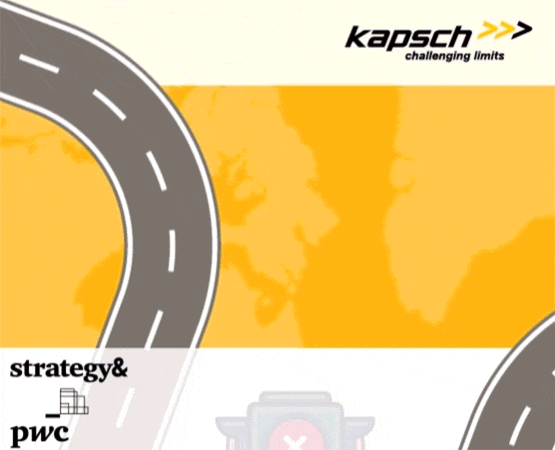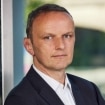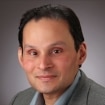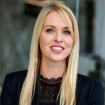
Case study
Kapsch: A strategic transformation
The family-led technology firm reinvents itself to offer global intelligent mobility solutions for 21st century traffic challenges working with PwC’s Strategy&.
Kapsch TrafficCom transforms its business to deliver intelligent mobility solutions globally
There is a thrilling magic to watching nocturnal traffic dart across an illuminated urban landscape. Lights blur into colourful patterns as millions of vehicles dance their way to different destinations, their tempos moderated by lights, tolls and road patterns. In the 21st century, this mosaic is being infused with new technology that is helping to speed up journeys, reduce pollution and avoid congestion in ways that will significantly change urban life. At the forefront of this transformation is Kapsch TrafficCom, part of the Kapsch Group, a family business which is in the process of morphing its own business to keep ahead of these changes.
Kapsch was founded as a precision workshop in Vienna 1892 to build telephone equipment and Morse telegraph devices. Over the past century, the rhythm of Kapsch’s own business has changed many times, much as traffic flows themselves, as technology shifted and new markets emerged. Around the turn of this century, Kapsch started to invest in electronic toll collection systems, and installed these worldwide. Today the company’s state-of-the-art traffic and mobility technology touches millions of vehicles across the world. Kapsch is a well-known brand in Austria and the parent group, which employs more than 7,000 people, has revenues of 1.1 billion Euros of which 700 million Euros comes from the Kapsch TrafficCom operations.
Kapsch TrafficCom introduced a new corporate structure that reflected Strategy&’s Fit for Growth* approach. It has helped free up more than US$100 million for new investments since 2014.

Changing lanes
In 2014 Georg Kapsch, a member of the fourth generation who now leads the firm, realised it was time to shift gears again. The toll systems market at the core of Kapsch TrafficCom’s business was not growing fast enough to meet the company’s ambition. At the same time, there was a real excitement around related traffic markets. Urban areas throughout the world are becoming more crowded, with the total number of kilometers driven expected to increase from 25.8 billion in 2010 to 67.1 billion by 2050. Municipalities need intelligent systems to regulate this flow, relieve congestion and spur productivity, and at the same time reduce pollution and accidents.
“We saw the opportunities clearly laid out,” says Georg Kapsch, who is now in year four of his Program 2020 strategic plan. The goal is to evolve from a nationwide provider of tolling systems into a global leader in developing and delivering holistic mobility and infrastructure management solutions.
The entrepreneur, who took over as CEO in 2001, has a vision of a future in which connected cars, equipped with internet access, constantly communicate with other vehicles and roadside infrastructure to offer new ways for people to live, park and shop. This would include new services that help people navigate and intelligent communications embedded in the cities of the future, making all the different travel options available: from cars to public transport to bikes and autonomous vehicles. “We knew the time was right to transform our business and organization, and we have already successfully done that back in 2001,” he says.
Video interview with Georg Kapsch, CEO of Kapsch TrafficCom
“Our ambition always was and still is to be a global leader in providing 21st-century intelligent mobility solutions for people all over the world. We are better prepared than ever to succeed in the next decade.”
Perform to innovate
Kapsch TrafficCom’s reinvention is a case study in how to marry the demands of a fiscally conservative but visionary family enterprise with a strategic framework that is designed to increase performance through investments in innovation and cost savings. At the time, PwC’s strategy consulting business Strategy& worked closely with Kapsch in order to chart a course to deliver Program 2020, using the five pillars of its Fit for Growth business transformation philosophy: strategy, capabilities, cost, organisation, and culture. One cornerstone of the Kapsch program, upon which its ultimate strategic aims were founded, was reducing costs by increasing efficiency and productivity to fund the business transformation. The solution was to work towards an improvement in performance.
Fit for Growth is a philosophy that focuses on distinguishing good and bad costs and finding ways to reduce the latter. The good costs build on a business’ core capabilities and help increase revenues. For example, in Kapsch TrafficCom’s world that has meant focussing on delivering new products and services in toll management services, such as in-vehicle technology that allows users to travel seamlessly on toll systems equivalent of roaming for mobile communication. This is also a building block of intelligent mobility solutions of the future, because it links national road networks to the urban environments: an off-ramp from the highways to the city streets. It’s not surprising that Kapsch has invested in the technology for electronic tolls on the bridges and tunnels into New York’s Manhattan from New Jersey in the United States.
In the process of the transformation, inefficiencies and unnecessary expenditure were weeded out: the bad costs. A consulting team from Strategy& worked with Kapsch TrafficCom to streamline administrative and back-office operations, eliminating duplications of work in multiple parts of the company, and challenging external spend. Engineering processes were also closely examined, and effective tools introduced in the quest for operational excellence. Together with Kapsch, the team worked to prioritize costs to allocate spending for future business development. “The performance targets were really ambitious“, says Peter Schuchlenz, Kapsch TrafficCom Executive Vice President and leader of the transformation program, “but together we beat [them], and more than €100 million (US$118 million) has been freed up for new investments since we started in 2014.”
Capable Kapsch
In his self-described role as “chief strategist”, Georg Kapsch believes that a relentless focus on commercial proof of new technologies and services must be counterbalanced by the continuous pursuit of innovation. Kapsch TrafficCom decided the most efficient way to bring in new capabilities it needed was to seek out stable, successful companies with proven in-house skills. Its acquisitions have varied in size and maturity but most come with track records. A defining acquisition was the established transportation business of Schneider Electric, a part of the company formerly operating as Telvent Tráfico y Transporte. The Schneider Electric deal enabled the company to develop business in important growth markets in Spain, Latin America, the United States and the Middle East, and Schneider’s traffic management strengths in tunnels and highways complemented Kapsch’s portfolio into the urban environment, thereby helping to fulfill its goal of expanding operations.
Structural revamp
Kapsch TrafficCom introduced a corporate structure that reflected Strategy&’s Fit for Growth approach, ensuring the necessary proximity to local and regional customers that allowed it to deliver customized global intelligent mobility solutions. The realignment also mirrored the company’s emphasis on global efficiency. Where it used to have self-contained local firms, the new Kapsch TrafficCom avoids unnecessary duplication of roles across the world and fosters global collaboration to best serve its customers. Kapsch now has regional and country-based sales and operations that conduct day-to-day conversations with clients and feed on-the-ground intelligence to a global technology team, which uses it to develop solutions and identify new product and service innovations.

A rejuvenated company
“The essence of our Fit for Growth framework is the belief that successful companies continuously work on their core capabilities, look for good and bad costs, and align their organization to growth. Kapsch TrafficCom agreed with this approach when we started working with them in late 2014. Strategic cost management and a performance culture are now part of the company’s DNA,” said Michael Wagner, a Partner with PwC Strategy& Germany and leader of Fit for Growth in Europe who worked closely with Kapsch and led the consulting support. The new Kapsch TrafficCom is working towards Georg Kapsch’s Program 2020 vision. “Our ambition always was and still is to be a global leader in providing 21st century intelligent mobility solutions for people all over the world. We are better prepared than ever to succeed in the next decade”, said Kapsch. With his eye always on what the future may bring, Georg Kapsch remains ready to transform the company to stay ahead of market demands, technology and innovation.
* Fit for Growth is a registered service mark of PwC Strategy& LLC in the United States.
Contact us

Contact us



Chantal Maritz
Partner | Payments Transformation Leader, Strategy& South Africa
Tel: +27 (0) 66 229 1202



